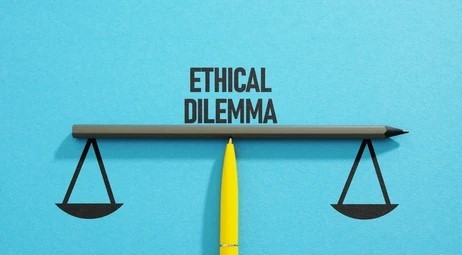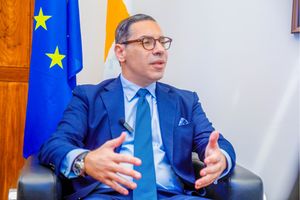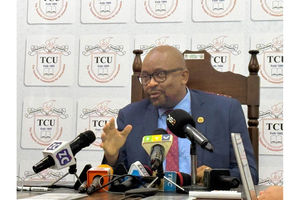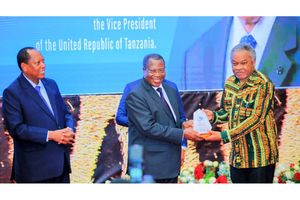What sim card taxation entails in the economic perspective
What you need to know:
- Among those who have aired dissatisfaction with the new tax include the telecom industry companies as well as many citizens.
Among the major discussion issues this month in Tanzania include the government’s decision to introduce a Sh1,000 monthly tax for each mobile phone sim card in use. Among those who have aired dissatisfaction with the new tax include the telecom industry companies as well as many citizens.
The issue is so big that, according to sections of the media, it reached the State House. Some economic perspectives on the said tax are outlined in this article.
Why taxation?
Taxation is among the major sources of funds needed to finance public goods and services in many countries. In Tanzania, tax revenues account for up to 50 per cent of the government budget while in some countries it covers up to 90 per cent.
So long as people need the government to provide the needed quantity and quality of public goods and services, payment of taxes is inevitable. Otherwise, the government has to borrow and depend on aid.
These two options have many and far-reaching negative implications to the economy. Knowing why tax is important as most Tanzanians are supposed to, one wonders why people would give a big no to paying Sh1,000 per month or Sh33.3 per day which on its face value does not seem to be huge amount of money. Some possible explanations are given below as part of contribution to resolving the controversy.
It is a regressive tax
The tax is regressive as opposed to progressive tax. With regressive tax, the same amount (Sh1,000 per month per sim card) will be paid by anyone who owns a sim card, his or her income level notwithstanding. Billionaires, millionaires and the poorest of the poor will pay the same amount. It is worth noting that not everyone who owns a sim card has income.
There are individuals who make some transfer payments to some sim card users. The ‘opposition’ to the tax could be reduced if it was made to be progressive rather than regressive. A country with many tax experts as Tanzania does should be able to make such turn around.
Highest tax rate ever?
The tax can be among the highest tax rates in many jurisdictions. This is because the sim card is sold at Sh1,000. With a Sh1000 tax per month imposed on it, it translates to Sh12,000 annual tax. This is equal to annual tax rate of 1,200 per cent of the buying cost of the sim card.
This is arguably among the highest annual tax rates not only in Tanzania but also across the globe.
Studies can show that high tax rates, the absolute amount notwithstanding, are among sources of complaints by payers. If the rate is lowered, authorities may win the hearts of objective ‘critics’.
Sim card as factor-input
Sim card is no longer the perceived luxury it used to be. It is a factor of production for some goods and services.
It enables sending and receiving of various information that is important in producing goods and services.
It enables farmers to get information on weather, extension services, markets and much more. It helps in settling transactions by enabling very convenient withdrawals, transfer and receipt of money between and within millions of unbanked transacting partners. Imposing a Sh1000 monthly tax is adding to production costs.
This may have many and far-reaching implications for those in the lowest economic strata but not the relatively well-off.
Multiple sim cards
A good number of Tanzanians have at least more than one sim card. One would think that, as rational ‘homoeconomicus’, one would kiss goodbye these ‘extra’ sim cards as a strategy to avoid the new monthly cost. However, among the reasons for holding multiple sim cards include escaping high inter-connection charges and connectivity problems in various locations for some companies.
Can narrow the telco-tax base
The aim of introducing the new tax is to widen the narrow tax base. Out-of the box thoughts and analysis may reveal that this aim of widening the tax base may actually narrow it. Depending on what Sh1,000 implies to sim card owners, we may see drop in ownership of some of these cards. This implies a reduced customer base for the telco industry.
By extension this implies less sales volumes, revenues, profits, re-investments by the telco firms and therefore less tax revenues associated with all of the above. A simple sensitivity analysis would be among scientific approaches of arriving at a good albeit controversial decision.
Alternative revenue sources
The aim of introducing the tax is to raise Sh160 billion. In ‘fighting against’ the tax, it would add value to propose new sources of funds to raise the badly needed Sh160 billion for rural electrification. Several strategies to raise the Sh160 billion annually are outlined here. Extra revenue can be raised by just improving the collection of existing taxes.
Enhancing revenue collection through various kinds of capacity building for revenue collectors, provision of adequate tax payers’ education as well as making tax payment more friendly stand to add new revenues substantially.
Avoidance of revenue leakages such as those through tax exemptions, evasion, avoidance and avoiding unnecessary expenditure will more than yield the Sh160 billion.
A huge sum can also come from reviewing down the Sh5 million per three years for each personalised car plate numbers. Charging less and on annual basis stands to bring more cash to the government coffers as advised several times by the author.




